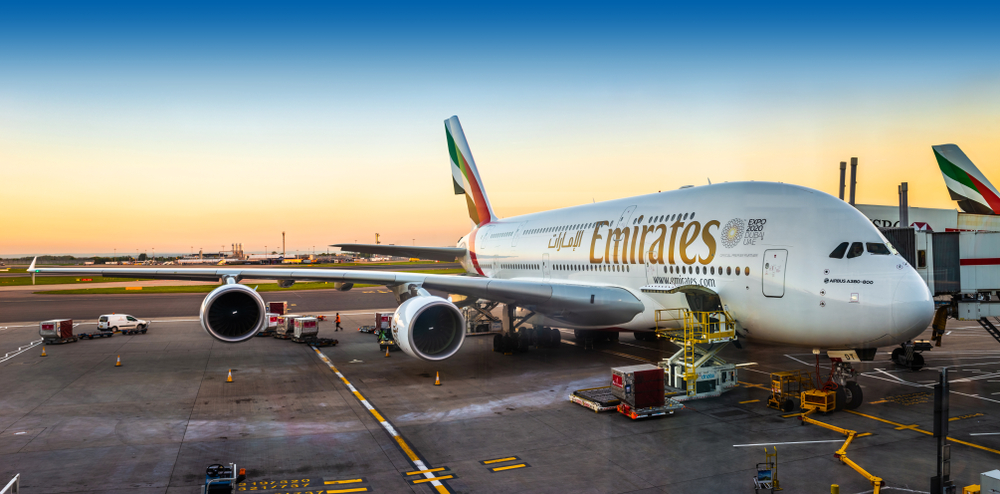Mainland companies are among the most popular corporate structures in Dubai and the rest of the UAE Emirates. With a Mainland company, you can do business not only in the UAE but also worldwide. What other benefits you can expect when registering a company on the mainland and how a Mainland differs from a freezone company, you will find out below.
Table of contents
The most important things in brief
What is a Mainland company?
How is a Mainland company founded?
What are the benefits of a Mainland company?
Full ownership rights
Diverse office options
No capital commitment
No trade restrictions
Business diversity
Do I need a license for a Mainland company?
What types of licenses are there?
Commerce and industry
Consulting and services
The most important differences between a freezone and mainland company
taxes
establishments
management
business activities
Switching from Freezone to Mainland
conclusion
FAQ
How much does a Mainland company cost?
The most important things in brief
- A Mainland company is a company founded on the mainland of the UAE.
- It is therefore also registered with the government agency of the relevant Emirate and is therefore not subject to trade restrictions.
- In contrast to other types of companies, a Mainland company offers more flexibility and therefore also the opportunity to gain a foothold in various markets without restrictions.

What is a Mainland company?
A Mainland company is a company that is registered and licensed on the mainland and can therefore also do business there. It is therefore also subject to the regular regulations of the UAE, but has the advantage that it has access to the entire Dubai market and can also do international business. A Mainland company can also operate in various legal forms:
- sole proprietorship
- civil society
- Limited Liability Company (LLC-Limited Liability Company)
- Public Joint Stock Company (PJSC)
How is a Mainland company founded?
To be able to found a Mainland company, you must first decide on an industry in which you want to do business and choose a company name. You should also consider whether you want to manage your company alone or together with other shareholders. Based on this, we will then apply for a license for you that covers your business activity. After that, all you have to do is sign the articles of association and a Memorandum of Association (MoA).
In any case, this will enable you to remain 100% owner of your company.
Good to know: A local partner or a local service agent is only needed in rare cases, e.g. in the oil sector, to found a Mainland company.
What are the benefits of a Mainland company?
If you decide to set up a Mainland company, this comes with a number of advantages for you. Because compared to other types of companies, a Mainland company offers you a wider range of business opportunities and a high degree of location flexibility. But these are just a few of the many benefits that we will present to you in more detail:
Full ownership rights
Some time ago, it was only possible for foreign entrepreneurs to retain full ownership of their company in Dubai under 2 conditions:
- You had to start a freezone company or
- They had to set up a professional service company on the Mainland
But in recent years, H.H. Sheikh Mohammed bin Rashid Al Maktoum has allowed foreign entrepreneurs to retain 100% ownership of their company in the UAE. This change opened up new opportunities for international investors and business people. Because by maintaining their own ownership rights, business owners can now enter the market directly with their business without having to depend on an Emirati company or person as a partner.
Good to know: H.H. Sheikh Mohammed bin Rashid Al Maktoum is ruler of Dubai as well as vice president, prime minister and defense minister of the UAE.

Diverse office options
In Dubai, you have the option of renting an office at will and without restrictions. This allows you to find the ideal location for your respective business activity and, if necessary, make it easier for your employees to get to work. Especially when they commute.
No capital commitment
When setting up a company on the Mainland, you are in most cases not required to pay a common investment. This gives you more capital right from the start that you can put into other important business investments.
Expanded visa options
Through a Mainland company, you have access to several visa options. This makes it easier for you to recruit international employees. This flexibility also allows you to scale your business as needed.
No trade restrictions
With a Mainland company, you are not subject to trade and location restrictions. This gives you access to a wider customer base and can, among other things, offer services for the government and trade directly with consumers across the UAE. In addition, a Mainland company allows you to open several branches in the United Arab Emirates to increase your presence in the market.
Business diversity
With a Mainland company, you can work in any sector. The only thing to note here is that you need a license for your business activity. However, if your business activities differ too much from the powers of your license, you must either add the different activity to the license or even apply for a new license. However, this allows you to easily diversify your business portfolio and at the same time quickly adapt to occasional market changes.
Good to know: Since June 2023, Mainland companies have been required to pay a corporation tax of 9% on profits of AED 375,000 or more.
Do I need a license for a Mainland company?
To be able to sell your products and services on the mainland, you need a business license (license). In doing so, the government of the United Arab Emirates wants to ensure that you, as an entrepreneur, are qualified to trade services and/or goods in a specific sector. To do this, you must be able to demonstrate certain skills or training, and in addition:
- Determine your line of business (freelance, commercial or industrial)
- Select a business area (Activity)
- Choose your company name and legal form
Good to know: Regardless of your chosen legal form, a Memorandum of Association (MoA) must be completed and signed.

What types of licenses are there?
In principle, you can differentiate between two major license types that every company must subordinate to. Those of trade and industry as well as consulting and services.
Commerce and industry
Trade is understood to mean all commercial activities that involve general trade, but also, for example, the rental of goods. Industrial activities, on the other hand, include the production and further processing of goods and/or products. You do not need a local partner for the trade license and the company remains 100% owned by you.
Consulting and services
In the consulting and service sector, you also remain 100% owner of your company. You do not need a Local Service Agent, and if only in very rare cases for certain licenses. Consulting and service services include business consulting or real estate.
The most important differences between a freezone and mainland company
In the context of setting up a company in Dubai, sooner or later, the terms Mainland and Freezone will come to mind. Both are specific types of companies, but they should not be confused with each other, as they involve different privileges in everyday business life. For this reason, we have summarized the most important differences for you below:
taxes
The most important difference between these two types of companies is probably taxes. This is because a Mainland company is generally obliged to pay corporation tax of 9%. In addition, most business transactions incur value added tax. For freezone companies, on the other hand, the corporate income tax rate is 0%. Freezone companies must also pay value added tax. However, only if the profit limit of AED 187,500 has been exceeded.
workforces
If you have a Mainland company, you must comply with general UAE labor regulations when hiring an employee. In free trade zones, employment law regulations are less strict. However, the regulations vary from freezone to freezone.

establishments
With a Mainland company, you can easily establish several branches or subsidiaries in the UAE. With a freezone company, it is also possible to set up a branch there. Also be aware that your branch will then not be subject to the rules of your free zone, but to those of the Mainland Authority.
management
With regard to management and corporate governance, you are generally subject to stricter regulations at a Mainland company than at a freezone company. However, there are exceptions here too. Freezones such as DIFC, for example, also have strict regulations in this regard.
Location regulations
If you are planning to set up a Mainland company, it must necessarily have a physical location in the UAE. With a freezone company, on the other hand, the location regulations are more flexible so that you can also have virtual office space.
business activities
With a Mainland company, you can work in any sector. With a freezone company, on the other hand, this is not always possible. This is because many freezones are limited to specific business areas. This means that you can only apply for licenses for those business activities that are permitted in the respective free trade zones.
Switching from Freezone to Mainland
As you can see, both corporate structures have their advantages and disadvantages. However, in the long term, Mainland Company appears to be the better choice if you are planning to expand your business. But what can you do if you currently still have a freezone company? In principle, this is no problem, because you can “switch” from a free zone to a Mainland company and thus take the decisive step for your business expansion. However, to do this, you must first liquidate your freezone company and found a new Mainland company. We at EXTENT will of course be happy to advise you on this matter and arrange everything necessary for you.
conclusion
Mainland companies in Dubai and the UAE are particularly interesting for you as an entrepreneur if you want to retain full ownership rights to your business and at the same time have a high degree of flexibility in your business activities. Because these companies are not subject to trade restrictions, which gives you access to the entire UAE market and makes expansion easier. Another advantage is the ability to set up without a capital commitment, which relieves you of the financial pressure somewhat right from the start. Compared to freezone companies, Mainland companies in turn offer a wider variety of business opportunities and location flexibility. However, a minor disadvantage of this type of corporate structure is that some taxes may apply and everyday business life is more strictly regulated than is the case with companies in a free trade zone. Nevertheless, a Mainland company enables you to effectively expand your business and have a strong presence in the UAE market.
FAQ
How much does a Mainland company cost?
The costs of setting up a Mainland company result from several items, including: license fees, office costs, MoA and Emirates ID, the residence visa and the Mainland business set-up fees. Therefore, you can expect approximately 12,000 euros upwards.
Sprechen Sie mit uns
Kontaktieren Sie uns, um Ihren individuellen Fall zu besprechen. Wir bieten Ihnen detaillierte Lösungen, die perfekt auf Ihre Bedürfnisse zugeschnitten sind.




